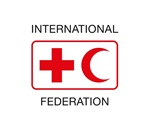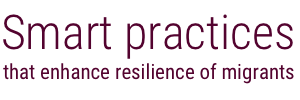Provision of cash cards to refugees, who use them to purchase materials to protect them from winter. It allows refugees to control how they meet their needs and helps restore dignity for refugees.
Starting in November 2013, a cash program in Lebanon provided 150 US dollars per month to refugees from Syria and some vulnerable Lebanese, to help them stay warm, dry and healthy during the winter. UNHCR was the main operator of the cash assistance program, and adapted an intervention that had been successful in Jordan. Several other organizations including IOM, Oxfam, Save the Children and Mercy Corps were also involved. Cash assistance was provided to two categories of beneficiaries: those living 500m above sea-level and those whose shelter was deemed ‘inadequate’ regardless of altitude.
Each beneficiary family was provided with an ATM card, topped up every month with between 100 and 200 US dollars, which they could use to withdraw cash from local banks. WFP also provided families with 30 US dollars’ worth of food vouchers. An evaluation of the program that compared beneficiaries and non-beneficiaries found that the cash assistance increased access to schools, reduced child labour, increased mutual support between beneficiaries and other community members, and decreased tensions in beneficiary households. The evaluation also found that 80 per cent of beneficiaries preferred cash assistance to in-kind assistance, citing the increased level of choice as the reason.
Similar cash assistance programmes have been used in several refugee camps, including by the IFRC and UNHCR in Ethiopia, Iraq and other locations. However, the implementation of similar programmes has been challenging in some countries due to government concerns.
In all, the winterization cash programme provided 87,700 individuals with cash; the programme had a multiplier effect on the local economy of 2.13.
Design. [P1] Directly focuses on financial assistance for refugees. [P3] Beneficiaries are given control over which needs they address.
Programme. [P9] Responds to refugees in Lebanon.
- The amount of money they provide a month for the refugees is not seen as sufficient.
- The system (cards, ATMs) sometimes crashes and does not work.
- Concerns about negative consequences of cash assistance to refugees may be overstated as there was no evidence of irresponsible spending, corruption or expoloitation.
- Refugees need more than 150 US dollars a month to satisfy their basic needs.
Smart practices
Smart practices report and database survey
About the report
People migrate in pursuit of a better life for themselves and their families. As described in the International Federation of Red Cross and Red Crescent Societies’ (IFRC) Policy on Migration, “migrants are persons who leave or flee their habitual residence to go to new places – usually abroad – to seek opportunities or safer and better prospects.
Read more
About the International Federation

